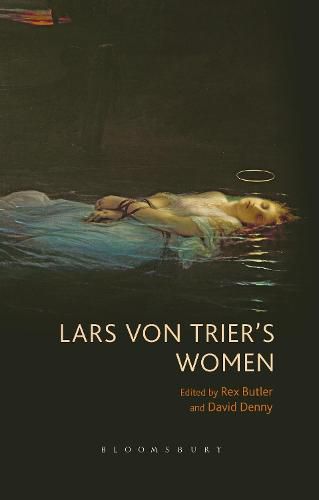Readings Newsletter
Become a Readings Member to make your shopping experience even easier.
Sign in or sign up for free!
You’re not far away from qualifying for FREE standard shipping within Australia
You’ve qualified for FREE standard shipping within Australia
The cart is loading…






The Danish director Lars von Trier is undoubtedly one of the world’s most important and controversial filmmakers, and arguably so because of the depiction of women in his films. He has been criticized for subjecting his female characters to unacceptable levels of violence or reducing them to masochistic self-abnegation, as with Bess in Breaking the Waves, ‘She’ in Antichrist and Joe in Nymphomaniac. At other times, it is the women in his films who are dominant or break out in violence, as in his adaptation of Euripides’ Medea, the conclusion of Dogville and perhaps throughout Nymphomaniac. Lars von Trier’s Women confronts these dichotomies head on. Editors Rex Butler and David Denny do not take a position either for or against von Trier, but rather consider how both attitudes fall short of the real difficulty of his films, which may simply not conform to any kind of feminist or indeed anti-feminist politics as they are currently configured. Using Lacanian psychoanalysis and acknowledging the work of prior scholars on the films, Lars von Trier’s Women reveals hidden resources for a renewed ‘feminist’ politics and social practice.
$9.00 standard shipping within Australia
FREE standard shipping within Australia for orders over $100.00
Express & International shipping calculated at checkout
The Danish director Lars von Trier is undoubtedly one of the world’s most important and controversial filmmakers, and arguably so because of the depiction of women in his films. He has been criticized for subjecting his female characters to unacceptable levels of violence or reducing them to masochistic self-abnegation, as with Bess in Breaking the Waves, ‘She’ in Antichrist and Joe in Nymphomaniac. At other times, it is the women in his films who are dominant or break out in violence, as in his adaptation of Euripides’ Medea, the conclusion of Dogville and perhaps throughout Nymphomaniac. Lars von Trier’s Women confronts these dichotomies head on. Editors Rex Butler and David Denny do not take a position either for or against von Trier, but rather consider how both attitudes fall short of the real difficulty of his films, which may simply not conform to any kind of feminist or indeed anti-feminist politics as they are currently configured. Using Lacanian psychoanalysis and acknowledging the work of prior scholars on the films, Lars von Trier’s Women reveals hidden resources for a renewed ‘feminist’ politics and social practice.